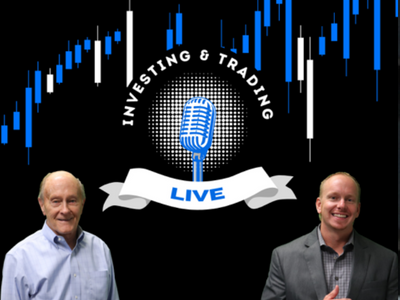Moonbet Study Shows How Gambling Affects the Brain and Why Online Platforms Must Do More
News > Technology News

Audio By Carbonatix
7:14 PM on Thursday, October 30
The Associated Press
GLENDALE, CA, October 30, 2025 (EZ Newswire) -- Moonbet, a leading online crypto casino, recently released the results of a study examining how gambling affects the brain and why online platforms must do more to identify and help customers who may be struggling with gambling addiction.
Highlights
- The brain responds powerfully to uncertainty and near-misses. That is why “just one more” feels rational at the moment. ( PMC )
- Harm is not rare. Millions struggle each year. Most do not get help. ( National Council on Problem Gambling )
- Tools exist that work. CBT has strong evidence; MI helps many, especially early. If you feel the loop tightening, seek care and set limits now. ( PMC )
What brain science actually says
Modern neuroscience treats gambling disorder as a real addiction. In 2013, it moved into the same diagnostic chapter as substance addictions in the DSM-5 because the brain changes and clinical course overlap: heightened cue-reactivity in reward circuits, impaired top-down control, and persistent relapse risk. Large reviews and imaging studies show the pattern clearly. ( PMC )
Two mechanisms drive the loop:
Reward prediction and dopamine. Uncertain rewards create stronger “teaching signals” than predictable ones. Anticipation spikes dopamine in striatal circuits; over time the bet itself becomes the trigger. Near-misses can recruit the same win-related circuitry and push further play. Human fMRI and laboratory models repeatedly show this, and pharmacology studies link the effect to D2 pathways. ( PMC )
Control systems go offline. With progression, prefrontal regions that support planning and inhibition show reduced control over impulses. Imaging reviews in gambling disorder mirror findings from drug addiction: stronger cue-reactivity and weaker control predicts worse outcomes. ( PMC )
Table 1. How gambling engages the brain
System: Striatum and midbrain dopamine
- What happens in gambling: Big spikes in response to uncertainty and “almost wins.”
- Why it matters: Teaches the brain to chase the next pull even after losses ( PMC )
System: Insula and salience networks
- What happens in gambling: Creates “It was close” and “I’m due” feelings.
- Why it matters: Fuels distorted beliefs and chasing behavior (near-miss effect) ( PMC )
System: Prefrontal control
- What happens in gambling: Reduced top-down braking under cues and stress.
- Why it matters: Makes it harder to stop and easier to binge ( PMC )
How common is harm
Best national estimates from the National Council on Problem Gambling suggest about 1% of U.S. adults meet criteria for a severe gambling problem in a given year, and another 2–3% have mild to moderate problems. That is millions of people, most of whom never get help.
Table 2. U.S. burden by the numbers
Measure: Adults with severe gambling problems (annual)
- Estimate: ~1% (≈ 2.5 million)
Measure: Adults with mild to moderate problems
- Estimate: ~2–3% (≈ 5–8 million)
Measure: Help-seeking
- Estimate: Low compared with need (multiple surveys) ( National Council on Problem Gambling )
Why online products supercharge the loop
The biology above did not come from apps, but apps remove friction. A browser creates more “loops” per hour, while design patterns mimic casino schedules: infinite scroll, intermittent reinforcement, near-miss visuals, and push cues. When you multiply loops against any non-zero house edge, expected loss grows with time. Our earlier reporting showed online players generating more volume in short windows; independent reviews link the online channel to greater time on device and higher losses for a subset of users. ( American Psychological Association )
Expected loss ≈ house edge × total wagered
Thus, more loops drive the total up, even if the edge looks small.
What actually helps
Evidence-based care exists:
- Cognitive-behavioral therapy (CBT) reduces gambling frequency, intensity and harm across multiple trials and reviews. ( PMC )
- Motivational interviewing (MI) can reduce days gambled and short-term spending, especially when readiness to change is low, though long-term effects vary by study. ( PubMed )
Table 3. Treatments with evidence
Approach: CBT (Cognitive Behavioral Therapy)
- What it targets: Triggers, distortions, chasing, money/time limits
- Evidence snapshot: Strong post-treatment reductions across meta-analyses and reviews ( PMC )
Approach: MI (Motivational Interviewing)
- What it targets: Ambivalence, readiness to change
- Evidence snapshot: Significant short-term reductions in gambling frequency and spend; mixed results beyond 3–12 months ( PubMed )
What most platforms are not doing
Most online casinos still emphasize “bonuses” and celebrity streams rather than transparent math and treatment pathways. Few present per-title RTP alongside a plain-language “house edge” label. Even fewer link to real-time help, self-exclusion, or deposit-limit tools prominently. Given the brain science and population burden above, this gap is hard to defend.
What Moonbet says it will do differently
The company states three commitments based on the evidence:
Publish the math and proofs. Per-game RTP and house edge will be shown in plain language. Outcomes and payouts will be verifiable on-chain, so players can replay a result instead of trusting a screenshot. (Earlier whitepapers describe near-zero-edge titles that target about 99.7–100% RTP, shifting outcomes toward variance rather than a hidden tilt.)
Fund treatment, not just disclaimers. Moonbet will donate a share of earnings to licensed gambling-addiction centers and publish the yearly totals, so funding is transparent and predictable.
Aim the product at adults with disposable income. The company’s public position is that it does not want to market to people in financial distress. The target audience is experienced adults who treat gambling as paid entertainment, understand volatility, and can afford losses. That includes firm ad guardrails, visible self-exclusion and deposit-limit tools, and refusing creatives that glamorizes “get rich quick.”
Moonbet also acknowledges an industry reality: not many people become wealthy from gambling and high-profile streams often feature subsidized or sponsored balances. The company’s stated goal is to replace marketing theater with receipts and keep vulnerable users away from high-risk funnels.
Resources
- Find help (U.S.): National Council on Problem Gambling helpline 1-800-GAMBLER, text 800GAM, or chat at ncpgambling.org. ( National Council on Problem Gambling )
- Treatment evidence: CBT and MI overviews and meta-analyses. ( PMC )
- Background reading: Brain mechanisms in gambling disorder and the near-miss effect. ( PMC )
###
SOURCE: Moonbet
https://app.eznewswire.com/news/moonbet-study-gambling-brain-online-platforms-must-do-more





